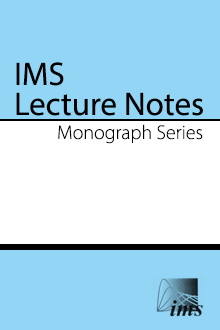Abstract
False discovery rate (FDR) has been widely used as an error measure in large scale multiple testing problems, but most research in the area has been focused on procedures for controlling the FDR based on independent test statistics or the properties of such procedures for test statistics with certain types of stochastic dependence. Based on an approach proposed in Tang and Zhang (2005), we further develop in this paper empirical Bayes methods for controlling the FDR with dependent data. We implement our methodology in a time series model and report the results of a simulation study to demonstrate the advantages of the empirical Bayes approach.
Information
Digital Object Identifier: 10.1214/074921707000000111


